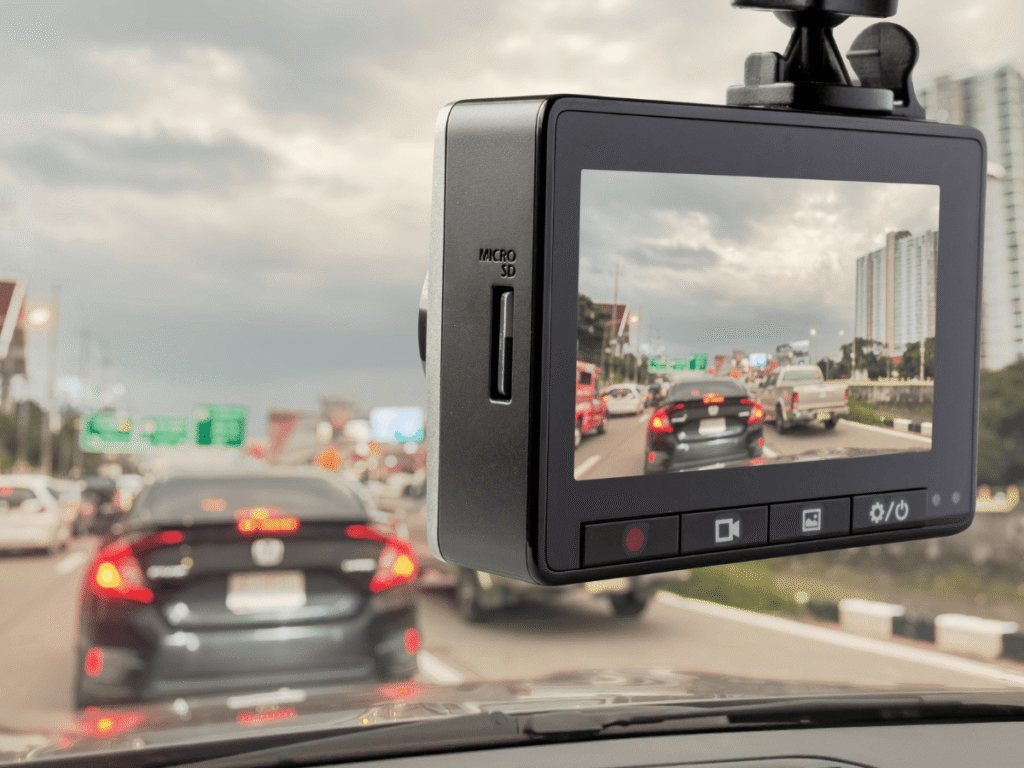AI Dashcams and DUIs: Could Your Own Car Turn You In?

Technology is transforming the way we drive. But could it also be helping prosecutors build cases against you?
With the rise of AI dashcams, smart cars, and driver monitoring devices, drivers in Wyoming face a new legal question of whether their own vehicle can provide evidence in a DUI case. If you’re stopped for suspected impaired driving, could your car’s data be the deciding factor between dismissal and conviction?
As car manufacturers introduce advanced in-car monitoring systems designed to improve safety, many drivers don’t realize these features could one day be used against them in court.
At Steven Titus & Associates, P.C., we stay ahead of legal trends to protect our clients. Our experienced Wyoming DUI defense law firm explores how this emerging technology impacts DUI cases and what you can do to safeguard your rights.
The Rise of AI Dashcams and Driver Monitoring Technology
Modern vehicles no longer just get you from point A to point B. They’re sophisticated computers on wheels. Many newer models come equipped with AI dashcams, lane-keeping assistance, drowsiness detection, and other driver monitoring tech designed to prevent accidents.
These systems can:
- Track eye movement and head position
- Detect erratic steering or braking patterns
- Record video and audio from inside and outside the vehicle
- Monitor speed, lane departure, and sudden maneuvers
- Store data on driving behavior over time
How Your Vehicle Could Become a Witness
Imagine being pulled over in Gillette for suspected impaired driving. Typically, law enforcement relies on observations, field sobriety tests, and chemical testing to build their case. But what happens if prosecutors gain access to data from your car that suggests erratic driving or even video of you behind the wheel?
Here’s how smart cars and DUI cases could intersect:
- Dashcam footage as evidence: If your AI dashcam captured footage of you swerving, missing stop signs, or appearing impaired, prosecutors may attempt to use that video in court.
- Driving behavior logs: Some vehicles record detailed driving patterns. Sudden braking, inconsistent speeds, and lane departures could be interpreted as signs of impairment.
- Audio recordings: Certain in-car systems record cabin audio, which could potentially capture slurred speech or incriminating statements.
- Automatic crash notifications: If your vehicle reports an accident and includes data suggesting reckless behavior, that information could be flagged during a DUI investigation.
Can Prosecutors Use AI Dashcam Data in Wyoming DUI Cases?
The short answer is that it depends. While AI dashcam DUI cases in Wyoming are still relatively new, there’s growing interest from law enforcement and prosecutors in leveraging this type of evidence.
How Prosecutors Could Access Your Car’s Data
- Voluntary consent: If a driver willingly shares footage or data.
- Subpoena or court order: Prosecutors can request access to vehicle data through legal channels.
- Third-party cloud storage: Some dashcam data is stored externally, potentially making it easier for authorities to request.
Constitutional and Evidentiary Protections
The legality of using your car’s data in court isn’t always straightforward. There are significant constitutional and evidentiary concerns that a skilled Gillette DUI defense attorney can challenge.
The increasing use of in-car monitoring raises important questions about privacy and the Fourth Amendment, which protects against unreasonable searches and seizures. There are even more key concerns to consider.
Expectation of Privacy
Do drivers have a reasonable expectation of privacy when using AI-equipped vehicles? Courts are still grappling with this issue, but if data is stored locally in your car, accessing it without consent could constitute an unlawful search.
Warrant Requirements
Law enforcement generally needs a warrant to access personal data. If prosecutors attempt to retrieve DUI evidence from a dashcam without proper legal authorization, that evidence could be excluded.
Self-Incrimination
The Fifth Amendment protects individuals from being forced to provide evidence against themselves. While physical evidence (like breathalyzer results) is typically admissible, using your own vehicle’s recordings could open debates about compelled self-incrimination.
At Steven Titus & Associates, P.C., we are prepared to challenge any misuse of AI data in DUI cases, ensuring that your constitutional rights are upheld.
Evidentiary Challenges
Even if prosecutors obtain AI dashcam footage or driver behavior logs, they still must prove that the evidence is accurate, relevant, and fairly represents impairment.
Potential defenses include:
- Questioning data accuracy: AI systems aren’t perfect. False positives in detecting “erratic” behavior are common, especially on Wyoming’s rural roads, where sudden swerves may avoid wildlife or potholes.
- Challenging context: A video showing unusual driving doesn’t automatically prove intoxication. Fatigue, weather conditions, or mechanical issues could explain the behavior.
- Ensuring proper chain of custody: Prosecutors must prove that data hasn’t been tampered with or taken out of context.
Our law firm knows how to scrutinize this type of evidence, preventing unfair or misleading interpretations from determining your fate.
How You Can Protect Yourself in the Age of AI Monitoring
While you can’t always avoid technology in modern vehicles, you can take steps to protect your rights if you’re involved in a DUI investigation:
- Know your rights: You are not obligated to voluntarily hand over dashcam footage or vehicle data without a warrant.
- Consult an attorney immediately: If law enforcement requests access to your vehicle’s monitoring systems, contact a Wyoming DUI defense attorney before agreeing to anything.
- Secure your data: If your dashcam stores data on a personal device or cloud account, be cautious about who can access it.
- Understand your vehicle’s features: Familiarize yourself with what your car records and how that information is stored or shared.
Finding a Wyoming DUI Defense Attorney Who Understands Technology
As DUI prosecutions evolve with advancements in driver monitoring tech, having a defense attorney who understands both the law and the technology is critical. At Steven Titus & Associates, P.C., we stay informed on emerging legal issues surrounding AI, privacy, and digital evidence.
We know how to:
- Challenge unconstitutional searches of your vehicle data
- Expose flaws in AI-generated evidence
- Negotiate aggressively to reduce or dismiss charges
- Protect first-time offenders and defend against enhanced penalties for repeat offenses
Talk to an Experienced Gillette DUI Lawyer Today
If you’re charged with a DUI, you need immediate legal representation. Prosecutors are becoming more creative in how they build cases, but you still have rights.
At Steven Titus & Associates, P.C., we combine extensive trial experience with a deep understanding of modern legal challenges to deliver an aggressive DUI defense. We’re very familiar with local courts, and we know the best strategies for getting the charges against you reduced or dismissed.
Call us today at (307) 257-7800 for a free consultation. We’ll be here to pick up the phone any time, 24/7.

Your FREE Case Strategy Session
On All Injury and Criminal Cases
Contact our office right now to speak to
someone who wants to help you.